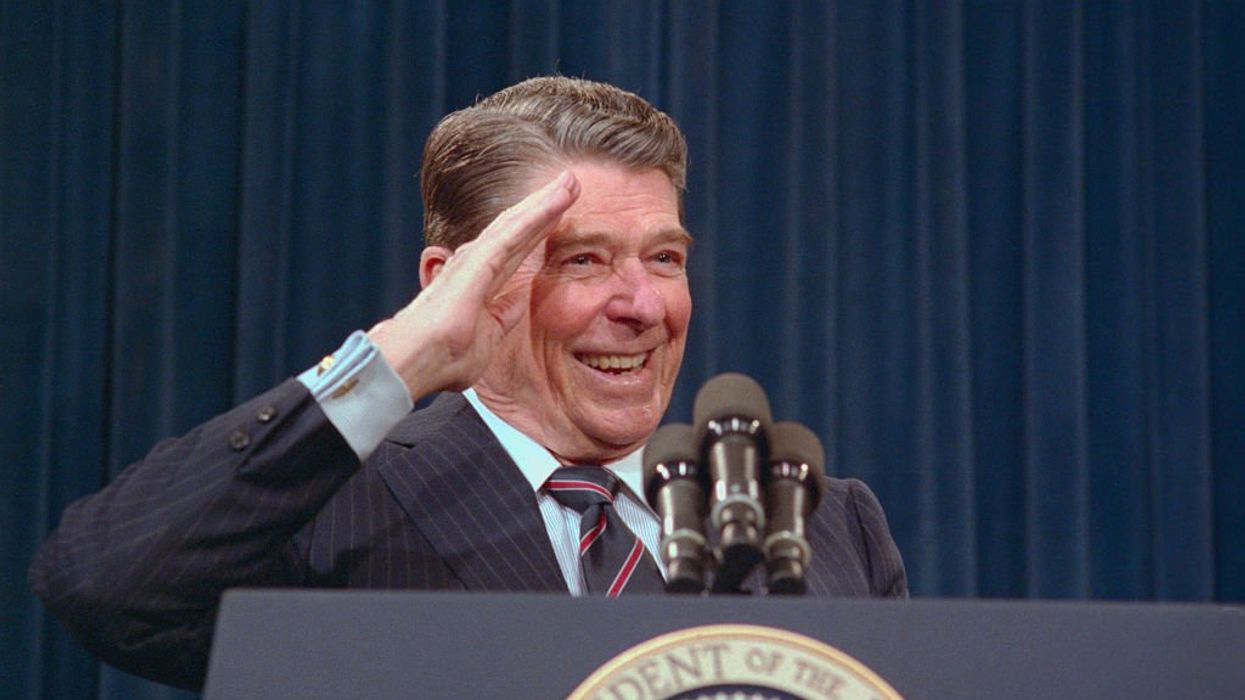With the World Health Organization declaring Nigeria's recent Ebola-free status a "spectacular success story," there are lessons that can be learned from the country, which had only a few outbreaks compared to others in West Africa.
The accomplishment comes after Nigeria reached 42 days without a new infection — this is two times longer than the longest incubation period for Ebola.
Ebola was first "imported" to Nigeria from a Liberian-American man who traveled there. The country experienced 20 cases resulting in eight deaths. In total, WHO estimates there have likely been more than 9,000 cases since the outbreak began, resulting in more than 4,500 deaths.
What led to Nigeria's success?
WHO first praised its government's coordination and leadership. But the Nigerian government wasn't alone in its effort to fight the small outbreak in its country. According to WHO, the U.S. Centers for Disease Control and Prevention and other organizations helped as well with various aspects of the process.
 Health port officials use a thermometer to screen passengers at the arrival hall of Murtala Mohammed International airport in Lagos, Nigeria, Oct. 20, 2014. On Monday, the World Health Organization announced a rare victory in the months-long battle against the killer disease, declaring Nigeria is Ebola-free. (AP/Sunday Alamba)
Health port officials use a thermometer to screen passengers at the arrival hall of Murtala Mohammed International airport in Lagos, Nigeria, Oct. 20, 2014. On Monday, the World Health Organization announced a rare victory in the months-long battle against the killer disease, declaring Nigeria is Ebola-free. (AP/Sunday Alamba)
"When the first Ebola case was confirmed in July, health officials immediately repurposed technologies and infrastructures from WHO and other partners to help find cases and track potential chains of transmission of Ebola virus disease," WHO said in a statement.
"Strong public awareness campaigns, teamed with early engagement of traditional, religious and community leaders, also played a key role in successful containment of this outbreak," WHO added.
Reuters took a deeper dive into what helped Nigeria become Ebola free. Here are some key points excerpted from Reuters piece:
- "We agreed that the thing to do was not to let [the first patient] out of the hospital," [Benjamin Ohiaeri], [a doctor from a Lagos hospital,] said, even after he became aggressive and demanded to be set free. "If we had let him out, within 24 hours of being here, he would have contacted and infected a lot more people."
- Lagos state governor Babatunde Fashola rushed back from a pilgrimage to Mecca to handle the crisis, Ohiaeri said.
- Nigeria used an existing health surveillance system for Polio for contact tracing, so was able to trace and isolate [diplomat Patrick] Sawyer's primary and secondary contacts quickly. Mobile technology meant live updates could be made to the contact list.
- The cooperation between the central government in Nigeria and the opposition-led administration in Lagos state contrasts with the United States, where bickering between Republican and Democrat lawmakers over Ebola has eroded public trust.
 Primary school children wash their hands with soap after testing their temperature for signs of the Ebola virus, in Lagos, Nigeria. Wednesday, Oct. 8, 2014. Spotting symptoms early is a key factor in treating victims of Ebola, and in arresting the spread of this extremely contagious disease, according to health experts. (AP/Sunday Alamba)
Primary school children wash their hands with soap after testing their temperature for signs of the Ebola virus, in Lagos, Nigeria. Wednesday, Oct. 8, 2014. Spotting symptoms early is a key factor in treating victims of Ebola, and in arresting the spread of this extremely contagious disease, according to health experts. (AP/Sunday Alamba)
Time added that with the Ebola outbreak on its own continent, Nigeria had prepared for the potential of an outbreak early, giving it an edge when it crossed its border.
With the disease continuing to spread in several other countries — most notably Liberia, Guinea and Sierra Leone — Nigeria remains alert that other imported cases could bring the disease back. Thus, it still has its surveillance system in place and revised its plan for preparedness and response, according to WHO.
Watch this report about Nigeria's new status as of Oct. 20:

 Health port officials use a thermometer to screen passengers at the arrival hall of Murtala Mohammed International airport in Lagos, Nigeria, Oct. 20, 2014. On Monday, the World Health Organization announced a rare victory in the months-long battle against the killer disease, declaring Nigeria is Ebola-free. (AP/Sunday Alamba)
Health port officials use a thermometer to screen passengers at the arrival hall of Murtala Mohammed International airport in Lagos, Nigeria, Oct. 20, 2014. On Monday, the World Health Organization announced a rare victory in the months-long battle against the killer disease, declaring Nigeria is Ebola-free. (AP/Sunday Alamba)
 Primary school children wash their hands with soap after testing their temperature for signs of the Ebola virus, in Lagos, Nigeria. Wednesday, Oct. 8, 2014. Spotting symptoms early is a key factor in treating victims of Ebola, and in arresting the spread of this extremely contagious disease, according to health experts. (AP/Sunday Alamba)
Primary school children wash their hands with soap after testing their temperature for signs of the Ebola virus, in Lagos, Nigeria. Wednesday, Oct. 8, 2014. Spotting symptoms early is a key factor in treating victims of Ebola, and in arresting the spread of this extremely contagious disease, according to health experts. (AP/Sunday Alamba)


